Our Leadership
Meet our remarkable leaders dedicated to bringing our vision of Quality Healthcare to All to fruition
50% of the population in Pakistan does not have access to basic health services1. Indus is helping address this crisis through its ‘One Health’ approach.
- Board of Directors
- Board of Governors
- Head of Directorates
Board of Directors
Indus Hospital & Health Network
The Board of Directors are a dynamic group of leaders and key decision-makers, who are responsible for making the best decisions for the good of the Hospital’s patients and employees
Board Sub Committees
| Audit & Finance | |
| Nasim Hyder | Chairman of the Committee |
| Abdul Karim Paracha | Director |
| Khalid Khanani | Director |
| Khaleequr Rahman | Member |
| Salim Razzak Tabani | Member |
| Community Health | |
| Abdul Karim Paracha | Chairman of the Committee |
| Adnan Asdar Ali | Director |
| Dr. Amber Rashid | Director |
| Nasim Hyder | Director |
| Abdul Hameed Paracha | Member |
| Ali Akhai | Member |
| Khaleequr Rahman | Member |
| Muhammad Siddique Sheikh | Member |
| Sohaib Javed | Member |
| Tariq Shafi | Member |
| Aamir Javed | Non – Member |
| Sher Azam Mazari | Non – Member |
| Dr. Shamvil Ashraf | Founding Executive |
| Construction & Maintenance | |
| Yunus Hashim Bengali | Chairman of the Committee |
| Abdul Karim Paracha | Director |
| Adnan Asdar Ali | Director |
| Mian Muhammad Ahsan | Director |
| Khaleequr Rahman | Member |
| Salim Razzak Tabani | Member |
| Sheikh Naveed Anwar | Member |
| Dr. Syed Zafar Zaidi | Founding Executive |
| Endowment | |
| Muhammad Yahya Chawla | Chairman of the Committee |
| Adnan Asdar Ali | Director |
| Dr. Amber Rashid | Director |
| Mian Muhammad Ahsan | Director |
| Nasim Hyder | Director |
| Khaleequr Rahman | Member |
| Salim Razzak Tabani | Member |
| Yunus Hashim Bengali | Member |
| Fund Raising – National | |
| Salim Razzak Tabani | Chairman of the Committee |
| Mian Muhammad Ahsan | Director |
| Shaikh Mohammad Pervez | Director |
| Tariq N. Siddiqui | Member |
| Ali Akhai | Member |
| Abdul Hameed Paracha | Member |
| Khaleequr Rahman | Member |
| Muhammad Iqbal Ahmed | Member |
| Muhammad Siddique Sheikh | Member |
| Shabbir Machiara | Member |
| Shahid Feroz | Member |
| Yunus Hashim Bengali | Member |
| Tariq Shafi | Member |
| Fund Raising – International | |
| Khaleequr Rahman | Chairman of the Committee |
| Abdul Karim Paracha | Director |
| Anwaar Ahmad Khan | Director |
| Dr. Amber Rashid | Director |
| Mian Muhammad Ahsan | Director |
| Muhammad Yahya Chawla | Director |
| Shaikh Mohammad Pervez | Director |
| Abdul Hameed Paracha | Member |
| Muhammad Siddique Sheikh | Member |
| Salim Razzak Tabani | Member |
| Tariq Shafi | Member |
| Human Resource & Remuneration | |
| Khalid Khanani | Chairman of the Committee |
| Anwaar Ahmad Khan | Director |
| Ahmed Chinoy | Member |
| Masood Nawab | Member |
| Rehan Hanan | Member |
| Salim Razzak Tabani | Member |
| Rehan Rahman | Non – Member |
| Information Technology | |
| Nasim Hyder | Chairman of the Committee |
| Adnan Asdar Ali | Director |
| Salim Razzak Tabani | Member |
| Salim Laliwala | Non – Member |
| Project Evaluation | |
| Khaleequr Rahman | Chairman of the Committee |
| Muhammad Yahya Chawla | Director |
| Shaikh Mohammad Pervez | Director |
| Tariq Naz Siddiqui | Member |
| Abdul Hameed Paracha | Member |
| Muhammad Siddique Sheikh | Member |
| Mohammad Younus Dagha | Member |
| Dr. Zafar Zaidi | Founding Executive |
| Pervaiz Ahmed | Executive |
| Procurement | |
| Salim Razzak Tabani | Chairman of the Committee |
| Anwaar Ahmad Khan | Director |
| Nasim Hyder | Director |
| Abdul Hameed Paracha | Member |
| Sheikh Naveed Anwar | Member |
| Yunus Hashim Bengali | Member |
| Amin Chinoy | Founding Executive |
| Quality Improvement & Patient Safety | |
| Khalid Khanani | Chairman of the Committee |
| Abdul Karim Paracha | Director |
| Dr. Amber Rashid | Director |
| Muhammad Yahya Chawla | Director |
| Nasim Hyder | Director |
| Dr. Shamvil Ashraf | Founding Executive |
| Shariah Advisory |
| Mufti Hafiz Muhammad Umair |
| Mufti Muhammad Najeeb Khan |
| Mufti Ibrahim Essa |
| Zakat | |
| Hafiz M. Aamir | Chairman of the Committee |
| Anwaar Ahmad Khan | Director |
| Nasim Hyder | Director |
| Amanullah Ismail | Member |
| Iqbal Panwala | Member |
| Masood Nawab | Member |
| Sheikh Naveed Anwar | Member |
| Dr. Amin Chinoy | Founding Executive |
| Regional Board | |
| Javed Arshad Bhatti | Chairman of the Committee |
| Adnan Asdar Ali | Director |
| Anwaar Ahmad Khan | Director |
| Mian Muhammad Ahsan | Director |
| Muhammad Yahya Chawla | Director |
| Shaikh Mohammad Pervez | Director |
| Saman Asif | Member |
| Abdul Rasheed Lone | Non – Member |
| Mian Ahmed Fazal | Non – Member |
| Muhammad Asif Saad | Non – Member |
Member of General Body
- Abdul Karim Paracha
- Tariq Naz Siddiqui
- Abdul Hameed Paracha
- Abdul Salaam
- Adnan Asdar Ali
- Ahmed Chinoy
- Ali Akhai
- Amanullah Ismail
- Amanullah Khan
- Dr. Amber Rashid
- Anwaar Ahmad Khan
- Arif Lakhani
- Arif Qasim
- Faiyaz Ahmed
- Hafiz Muhammad Aamir
- Imtiaz Ahmed Khan
- Iqbal Ahmed
- Iqbal Ahmed Qarshi
- Iqbal Panwala
- Javed Arshad Bhatti
- Khaleequr Rahman
- Khalid Khanani
- Khawaja Azhar Ahmed
- Masood Nawab
- Mian Muhammad Ahsan
- Mian Talat Mahmood
- Dr. Misbah Iqbal Qarshi
- Dr. Muhammad Abdullah
- Muhammad Hanif Janoo
- Muhammad Siddique Sheikh
- Muhammad Yahya Chawla
- Nasim Hyder
- Rehan Hannan
- Salim Razzak Tabani
- Saman Asif
- Samina Dada
- Sardar Yasin Malik
- Shabbir Machiara
- Shahid Feroz
- Shaikh Mohammad Pervez
- Sheikh Naveed Anwar
- Sohaib Javed
- Tariq Mohammed Aly Rangoonwala
- Tariq Shafi
- Usman Ahsan
- Yunus Dhaga
- Yunus Hashim Bengali
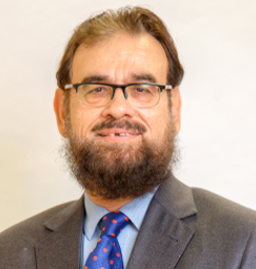
Dr. Abdul Bari Khan
Founding President
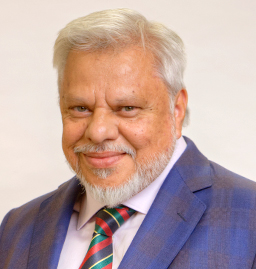
Abdul Karim Paracha
Chairman
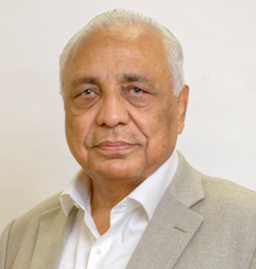
Shaikh Mohammad Pervez
Director
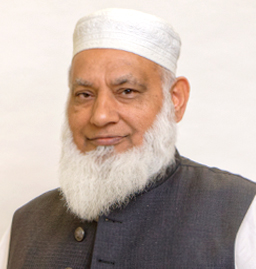
Anwaar Ahmad Khan
Director
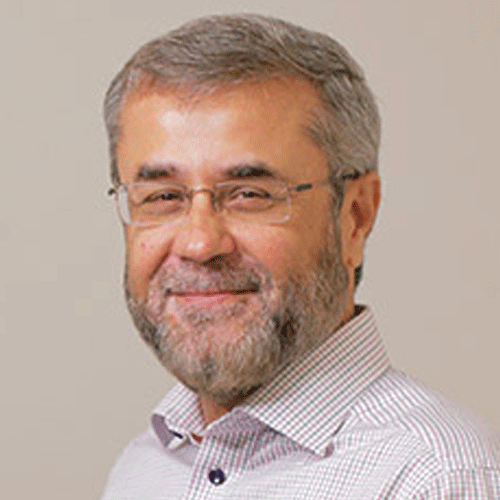
Muhammad Yahya Chawla
Director
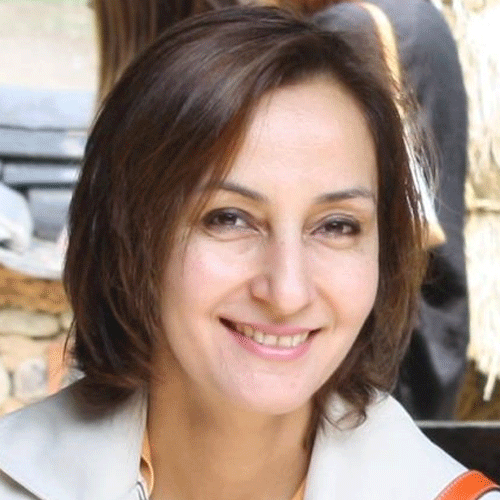
Dr. Amber Rashid
Director
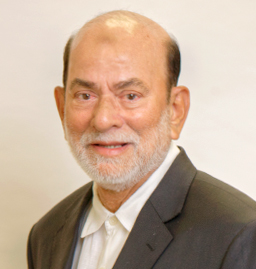
Nasim Hyder
Director
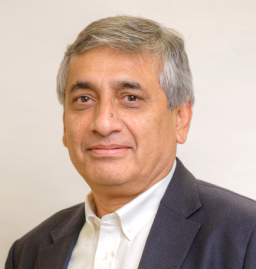
Adnan Asdar Ali
Director
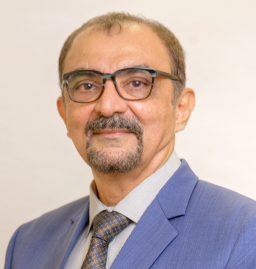
Khalid Khanani
Director
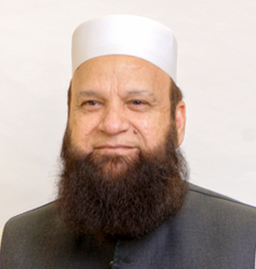
Mian Muhammad Ahsan
Director
Board of Governors
Indus University of Health Sciences
The Board of Governors is a group of strategic leaders who aim to create a legacy of expert healthcare professionals ready to tackle health challenges facing the local & global health landscape with compassion, empathy and dignity.
- Muhammad Siddique Sheikh
- Sultan A. Chawla
- Dr. Shamshad Akhtar
- Shahid Firoz
- Mohammad Younus Dagha
- Tariq Siddiqui
- Professor Valerie Wass
- Professor Janet Grant
- Professor Kamran Asdar Ali
- Professor Khaja H Mujtaba Quadri
- Professor Syed Zafar Zaidi
Our Team
Meet the rest of our inspiring team
50% of the population in Pakistan does not have access to basic health services1. Indus is helping address this crisis through its ‘One Health’ approach.



